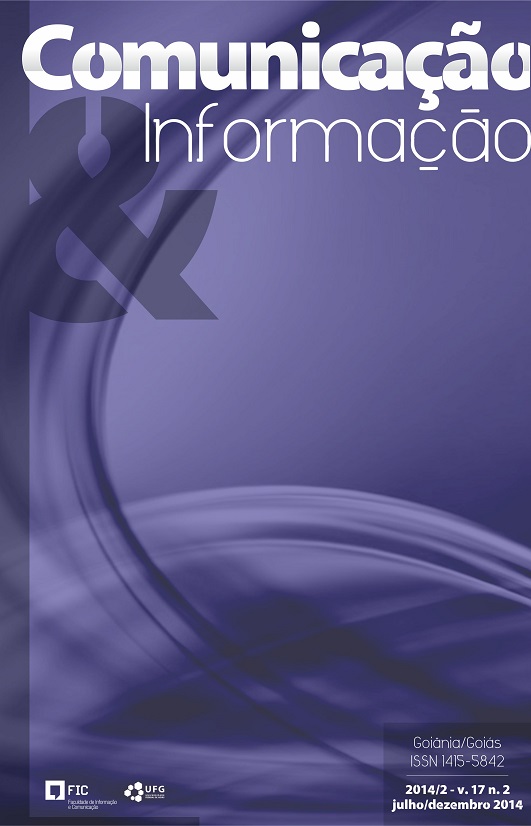A avaliação formativa no ensino superior: o contributo do feedback interativo e construtivo na aprendizagem ativa dos estudantes
DOI :
https://doi.org/10.5216/31821Mots-clés :
Ensino Superior. Avaliação formativa. Feedback interativo e construtivo.Résumé
Neste artigo, apresentam-se os principais resultados de uma investigação, que teve como principal objetivo analisar a importância do feedback como estratégia de avaliação formativa e de melhoria do desempenho dos estudantes. O objeto de estudo foi uma unidade curricular (UC) integrada no currículo de Mestrado Integrado em Psicologia, numa Instituição de Ensino Superior. Observámos 20h de aulas, no 2º semestre de 2013/2014 e realizámos uma entrevista semiestruturada ao docente que lecionou a UC e uma entrevista focus group a 5 estudantes que a frequentaram. Os dados foram analisados e categorizados com recurso ao webQDA- Software de Apoio à Análise Qualitativa. O feedback, interativo e construtivo, promovia o envolvimento dos estudantes na acomodação dos seus processos cognitivos, ajudando-os a desenvolver competências de regulação, ao mesmo tempo que promovia uma aprendizagem consistente. O docente criava ambientes de aprendizagem dinâmicos e não ameaçadores, estimulava a participação, a partilha, a colaboração, a exposição pessoal e a crítica construtiva.Em contextos similares de avaliação formativa, o recurso pelo docente e pelos estudantes ao feedback construtivo e interativo deve ser uma estratégia de regulação para a melhoria e consolidação da aprendizagem.
Téléchargements
Références
ALARCÃO, I.; LEITÃO, A.; ROLDÃO, M. Prática pedagógica supervisionada e feedbackformativo co-construtivo. Revista Brasileira de Formação de professores-RBFP, v. 3, n. 1, p. 02-29,2009.
ALVES, M. P. Currículo e avaliação: uma perspectiva integrada. Porto: Porto, 2004.
AMADO, J.; COSTA, A. P.; CRUSOÉ, N. Análise de conteúdo. In: J. AMADO (Ed.),Manual de investigação qualitativa. Coimbra: Imprensa da Universidade de Coimbra,2013.
ASKEW, S.; LODGE, C. Gifts. Ping-pong and loops: linking feedback and learning.In: ASKEW, S. (Ed.). Feedback for Learning. London: Routledge; Falmer, 2000. p. 1-17.
BARDIN, L. Análise de conteúdo. 5. ed.Lisboa: Edições 70, 2011.
BELL, B.; COWIE, B. Formative assessment and science education.Dordrecht, TheNetherlands: Kluwer Academic Publishers, 2000.
BIGGS, J. Teaching for quality learning at university. Berkshire: Society for Research into Higher Education and Open University Press, 2003.
BIGGS, J.; TANG, C. Teaching for quality learning at university: what students does. 3. ed. Berkshire: MGraw-Hill; Society for Research into Higher Education and OpenUniversity Press, 2007.
BONWELL, C. C.; EISON, J. A. Active learning: Creating excitement in the classroom. Washington, DC: The George Washington University, 1991.
COSTA, António Pedro Dias da. Metodologia híbrida de desenvolvimento centrado no utilizador. 2012. 233 f. Tese (Doutorado) - Curso de Educação, Departamento de Comunicação e Arte, Universidade de Aveiro, Aveiro, 2012.
DREW, S. Student Perceptions of what helps them learn and develop. Higher Education,v. 6, n. 3, p. 309-331,2001.
HADJI, C. A Avaliação, regras do jogo: das intenções aos instrumentos.Porto: Porto, 1994.
HIGGINS, R.; HARTLEY, P.; SKELTON, A. The conscientious consumer:reconsidering the role of assessment feedback in student learning. Studies in HigherEducation, v. 27, n. 1, p. 53?64, 2002.
HOUNSELL, D. Towards more sustainable feedback to students. In: BOUD, D.; FALCHIKOV, N. (Eds.), Rethinking assessment in higher education: learning for thelonger term. London: Routledge, 2007. p. 101-113
FERNANDES, D. Para uma teoria da avaliação formativa. Revista Portuguesa de Educação, v. 19, n. 2, p. 21-50,2006.
NICOL, D.; MACFARLANE?DICK, D. Formative assessment and self-regulatedlearning: a model and seven principles of good feedback practice. Studies in HigherEducation, v. 31, n. 2, p. 199?218, 2006.
YORKE, Mantz. Formative assessment in higher education: moves towards theory and the enhancement of pedagogic practice. Higher Education, [s.i.], v. 45, n. 4, p.477-501, jun. 2003.
OLIVEIRA, Paulo José Coelho de. Ensino da física num curso superior de engenharia: na procura de estratégias promotoras de uma aprendizagem activa. 2009. 266 f. Tese (Doutorado) - Curso de Educação, Departamento de Didáctica e Tecnologia Educativa, Universidade de Aveiro, Aveiro, 2009.
NUÑO, Maria Ascensión Antón. Docencia universitaria: concepciones y evaluación de los aprendizajes: estudio de casos. 2012. 391 f. Tese (Doutorado) - Curso de Educación, Departamento de Ciencias de La Educación, Universidad de Burgos, Burgos, 2012.
PERRENOUD, P. Avaliação, da excelência à regulação das aprendizagens: entre duaslógicas. Porto Alegre: Artmed, 1999.
ROLDÃO, M. Gestão do currículo e avaliação de competências. Lisboa: Presença, 2003.
SOUZA, N. DE; COSTA, A.; MOREIRA, A. WEBQDA (Aveiro). Departamento de Educação da Universidade de Aveiro. Apresentação. 2014. Disponível em: <https://www.webqda.com/acerca/apresentacao/>.
STRUYVEN, K.; DOCHY, F.; JANSSENS, S. Students’ perceptions about evaluation andassessment in higher education: a review. Assessment & Evaluation in Higher Education,v. 30, n. 4, p. 331–347, 2005.
STUFFLEABEAM, D.; SHINKFIELD, A. Evaluación sistemática: guia teórica ypráctica. Barcelona: Edicíones Paidós, 1987.
TORRANO, F.; GONZÁLEZ, M. Self-Regulated learning: current and futures directions.Electronic Journal of Research in Educational Psychology, v. 2, n. 1, p. 1-34, 2004.
Téléchargements
Publié-e
Comment citer
Numéro
Rubrique
Licence
Os autores dos trabalhos publicados na revista Comunicação e Informação retêm os direitos autorais sem restrições e concedem à revista o direito de primeira publicação, com o trabalho simultâneo licenciado sob a Licença Creative Commons Atribuição-NãoComercial que permite o compartilhamento do trabalho para fins não comerciais com reconhecimento da autoria e o privilégio de publicação primeiramente por esta revista. Caso o texto venha a ser publicado posteriormente em outro veículo, solicita-se aos autores informar que o mesmo foi originalmente publicado como artigo na revista Perspectiva, bem como citar as referências bibliográficas completas dessa publicação.
Os direitos autorais dos artigos pertencem aos autores e o conteúdo dos artigos assinados é de responsabilidade exclusiva dos autores.
A revista se reserva o direito de efetuar, nos originais, alterações de ordem normativa, ortográfica e gramatical, com o intuito de manter o padrão culto da língua, respeitando, porém, o estilo dos autores.
A revista também se reserva o direito de traduzir o artigo, no todo ou em parte, para o inglês ou para o português, dependendo do idioma em que o artigo tenha sido escrito originalmente.



